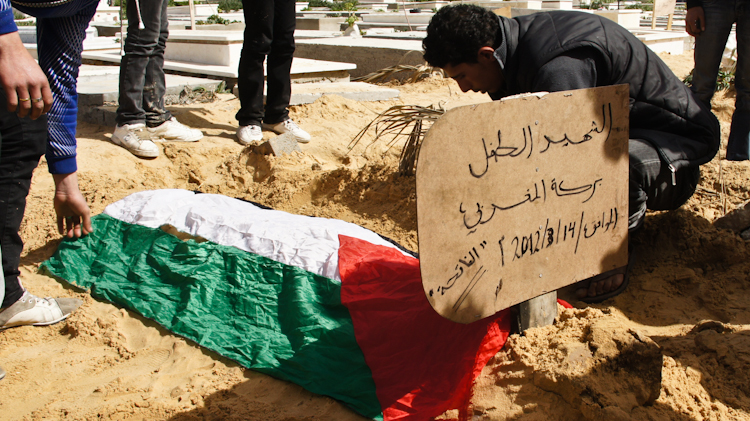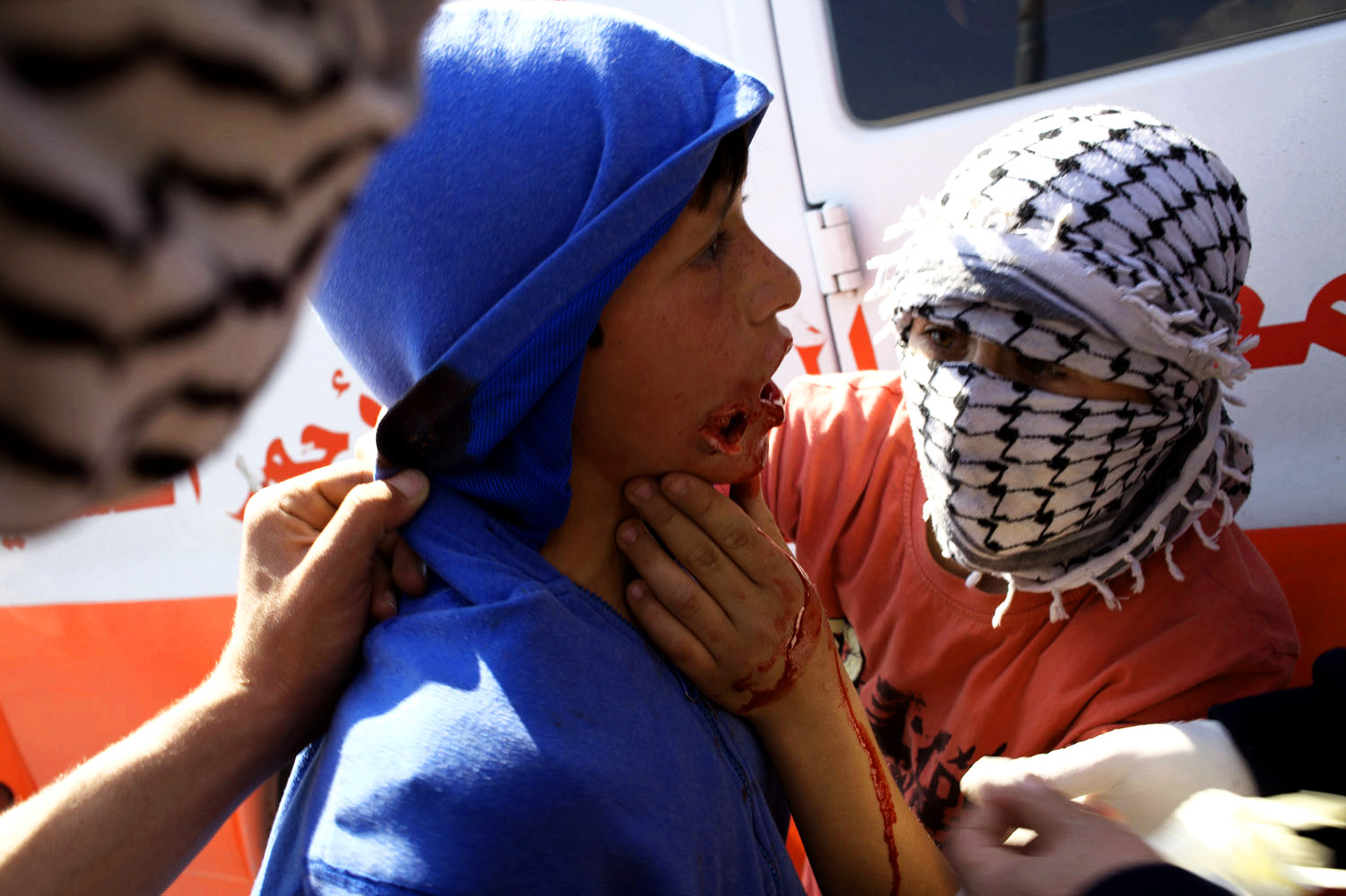Year: 2012
-
Al Khalil: School children reflect on changes in Israeli military following presence of ISM volunteers
by Edna 25 March 2012 | International Solidarity Movement, West Bank The safe, comfortable, winsome childhood I had growing up in suburban America is a completely theoretical concept for the Palestinian children in the West Bank. I’ve realized this while volunteering as a human rights observer in Hebron. One activity that entails is sitting and…
-
Two Stray Bullets in Gaza
by Johnny Bravo 24 March 2012 | International Solidarity Movement, Gaza On Sunday it was reported that a young boy had been shot on farmland near the Rafah crossing. The details were unclear. Several colleagues and I traveled to Rafah to find out what happened. After making several inquiries, we entered a Bedouin area several…
-
Nabi Saleh: Israeli Soldiers Shoot 15 year old in the face with rubber coated steel bullet
by Jonathan Pollack 23 March 2012 | Popular Struggle Coordination Committee The bullet shot from a short distance hit the boy in the face penetrating his right cheek and piercing it. Israeli Border Police officers shot a rubber-coated bullet at 15 year-old Ezz Tamimi’s face from a distance of about 20 meters, during the weekly…



